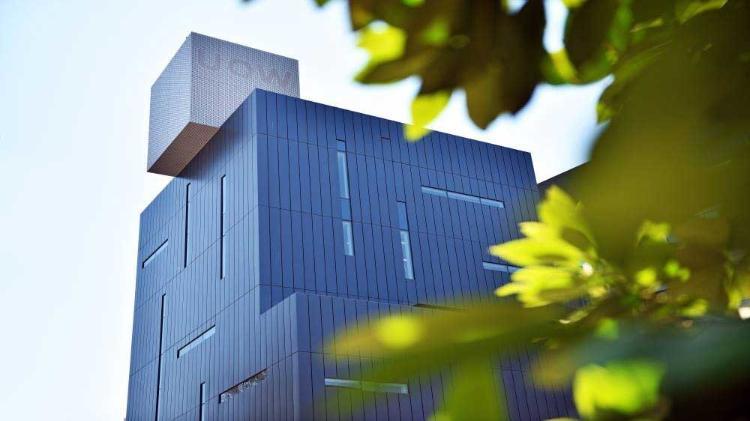MALDI-2 and t-MALDI-2 mass spectrometry imaging: Molecular insights into tissues and cell cultures at the micrometer scale

Molecular Horizons Seminar: Professor Klaus Dreisewerd
-
-
-
Wollongong Campus
35-G20
Matrix-assisted laser desorption ionization mass spectrometry imaging (MALDI-MSI) is increasingly used for the label-free imaging of various classes of cellular lipids and further metabolites in tissue sections and in cell culture. Recent technology advancements, such as MALDI combined with laser-based postionization (MALDI-2) and transmission mode (t-)MALDI-2 MSI, now enable sensitive chemical profiling of these analyte classes at a cellular resolution and pixel sizes in the low to sub-micrometer range. Moreover, in-source coupling of t-MALDI-2-MSI with bright-field and fluorescence microscopy can now enable the co-registration of these metabolites and fluorescently labelled cellular components (e.g., proteins) with high spatial confidence.
Along with a brief excursion into the historical roots of the MALDI technique at Münster University, I will in may talk outline our current view on the mechanisms underlying the MALDI-2 method. I will discuss the analytical potential of the molecular (t-)MALDI-2 microscope with examples from current research collaborations and our method development with Bruker Daltonics.